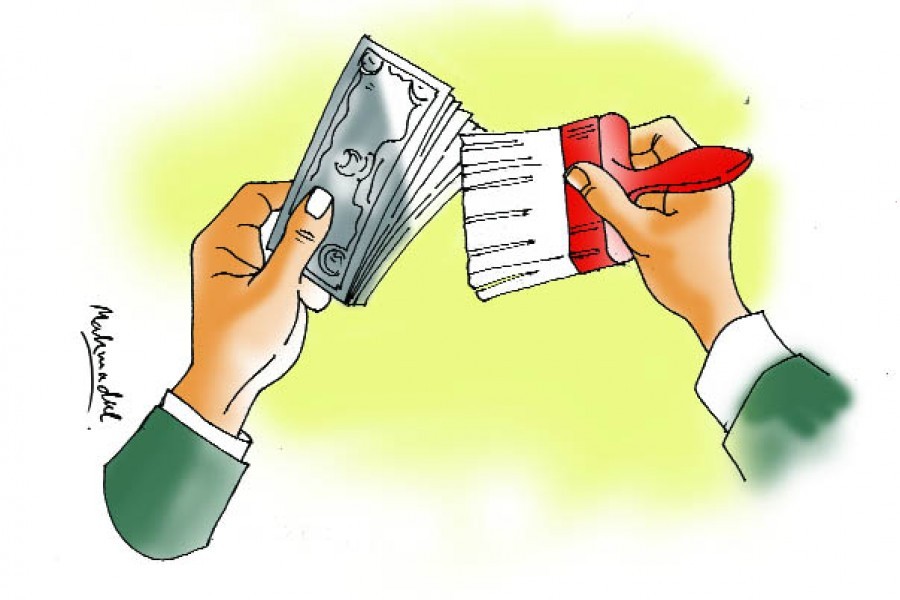Transparency International Bangladesh (TIB) on Tuesday urged the government not to keep any provision of whitening of black money in the forthcoming national budget in the name of creating employment by attracting investment and boosting revenue generation.
The Bangladesh chapter of the Berlin-based organisation termed such scope in the budget "discriminatory and unconstitutional" and graft-supportive one, reports UNB.
The second budget session (8th session) of the 11th parliament will begin at 5pm on Wednesday amid the COVID-19 pandemic in the country.
Finance Minister AHM Mustafa Kamal will place a Tk 5.57 trillion proposed national budget for the 2020-21 fiscal year in the House giving an outline of recovering the economy from the negative impacts of COVID-19 pandemic in his budget speech.
The Finance Minister will also narrate various steps so far the government has already taken to face the adverse impact of the COVID-19 and save people’s lives and livelihoods.
Citing media reports, TIB condemned the government move to expand scope of whitening undisclosed money through buying flats, land as well as investing those in development projects and the stock market, said a press release.
“The forthcoming budget is not only giving the opportunity to whiten black money on a large scale but also it's going to remove the provision of Anti-Corruption Commission to question the source...it cannot be desired,” said TIB Executive Director Dr Iftekharuzzaman.
He noted that the country's economy never benefited from this facility in the past years neither it helped to collect significant revenue. “Rather it questioned the government's anti-corruption stance.”
The TIB Executive Director urged the government to refrain from taking such a move and termed it ‘discriminatory’ towards the honest citizens.
TIB demanded swift initiative to investigate huge foreign investments by multiple influential individuals and groups.
“I urge the government to take appropriate and effective accountability measures by exploring their sources of money instead of indulging them,” Dr Iftekharuzzaman said.
He highlighted the tragic exposure of the real condition on the country’s health sector due to the COVID-19 situation. “Such a fragile situation in the health sector was not created in one day.”
"Years after years, inadequate funding in the health sector, lack of coherence in spending, and rampant corruption in the sector have led to such catastrophes," he said.
TIB put forward a set of recommendations for the forthcoming national budget which includes adequate allocations to the health sector, increasing employment, and social security for people who have recently fallen below the poverty line due to the pandemic.
They also demanded an effective anti-corruption roadmap by ensuring transparency and accountability in all types of procurement, distribution and expenditure in these sectors.


